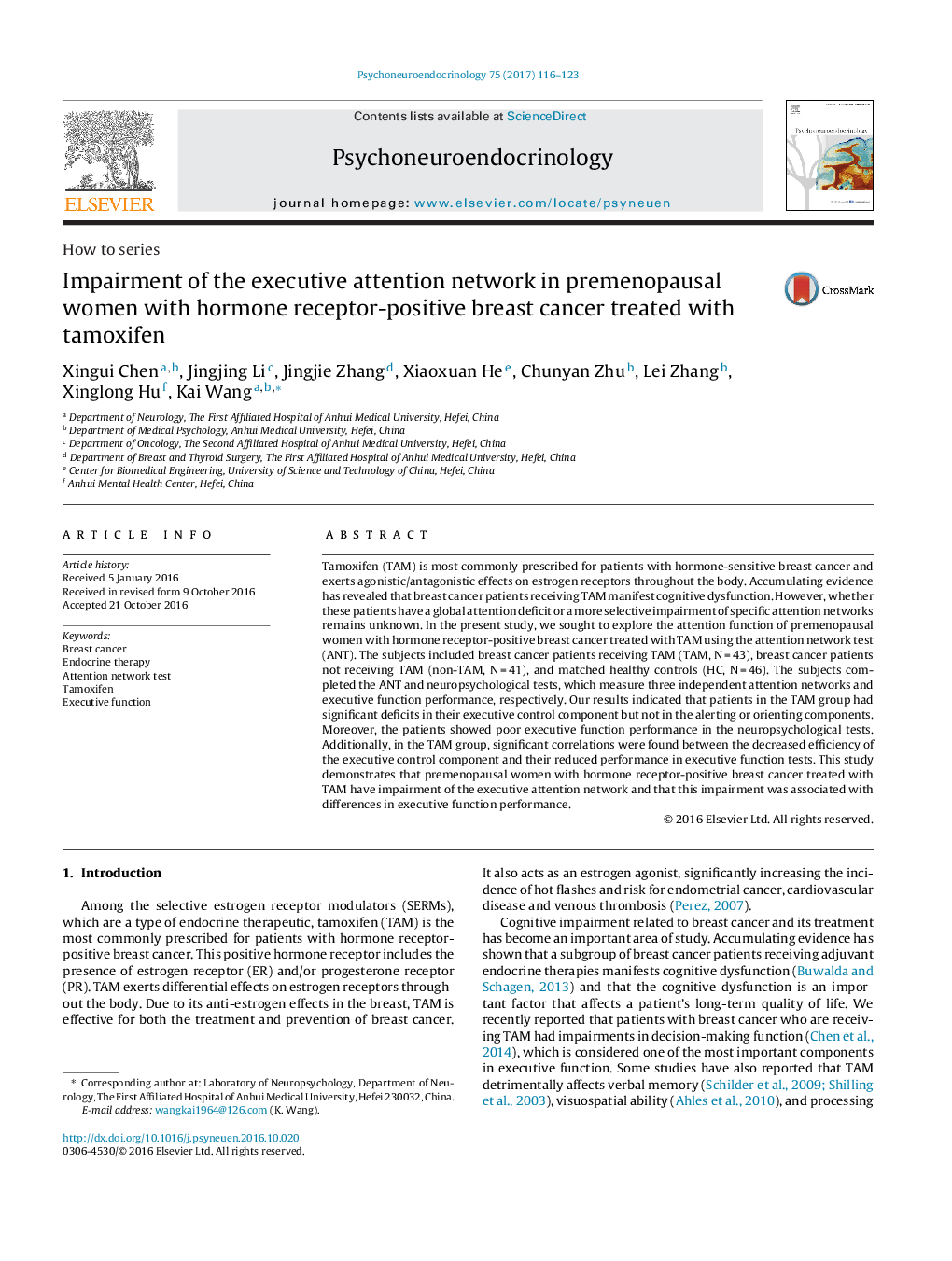| Article ID | Journal | Published Year | Pages | File Type |
|---|---|---|---|---|
| 4934615 | Psychoneuroendocrinology | 2017 | 8 Pages |
Abstract
Tamoxifen (TAM) is most commonly prescribed for patients with hormone-sensitive breast cancer and exerts agonistic/antagonistic effects on estrogen receptors throughout the body. Accumulating evidence has revealed that breast cancer patients receiving TAM manifest cognitive dysfunction. However, whether these patients have a global attention deficit or a more selective impairment of specific attention networks remains unknown. In the present study, we sought to explore the attention function of premenopausal women with hormone receptor-positive breast cancer treated with TAM using the attention network test (ANT). The subjects included breast cancer patients receiving TAM (TAM, NÂ =Â 43), breast cancer patients not receiving TAM (non-TAM, NÂ =Â 41), and matched healthy controls (HC, NÂ =Â 46). The subjects completed the ANT and neuropsychological tests, which measure three independent attention networks and executive function performance, respectively. Our results indicated that patients in the TAM group had significant deficits in their executive control component but not in the alerting or orienting components. Moreover, the patients showed poor executive function performance in the neuropsychological tests. Additionally, in the TAM group, significant correlations were found between the decreased efficiency of the executive control component and their reduced performance in executive function tests. This study demonstrates that premenopausal women with hormone receptor-positive breast cancer treated with TAM have impairment of the executive attention network and that this impairment was associated with differences in executive function performance.
Related Topics
Life Sciences
Biochemistry, Genetics and Molecular Biology
Endocrinology
Authors
Xingui Chen, Jingjing Li, Jingjie Zhang, Xiaoxuan He, Chunyan Zhu, Lei Zhang, Xinglong Hu, Kai Wang,
